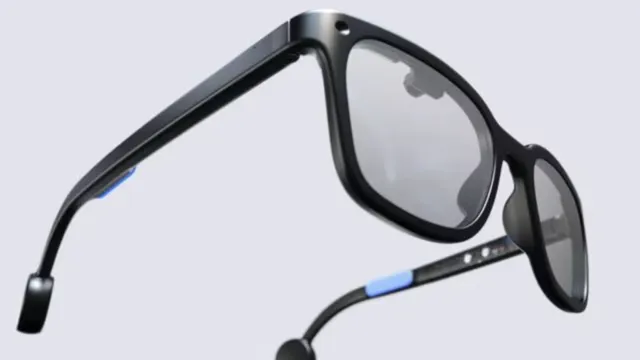- By Prateek Levi
- Wed, 06 Aug 2025 11:48 PM (IST)
- Source:JND
A new kind of smart glasses has arrived—one that’s slim, intelligent, and built to blend into everyday life. Singapore-based startup Brilliant Labs has introduced Halo, its latest AI-powered wearable that could redefine how we experience the world through eyewear.
These aren’t your typical clunky AR glasses. At around 40 grams, Halo looks and feels like a regular pair of glasses, but beneath the minimalist exterior lies some serious tech—a colour display, bone-conduction speakers, advanced sensors, and an AI assistant named Noa.
View this post on Instagram
ALSO READ: Group Added By Unknown Contact? WhatsApp Now Gives You A Safety Check
A New Kind of AI Experience in Smart Glasses
Halo isn’t Brilliant Labs’ first smart eyewear (previous devices like Monocle and Frame explored the VR/AR space), but this one takes a different approach. Instead of focusing purely on visual overlays, Halo aims to combine audio and visuals into a seamless experience. A tiny display module embedded in the lens frame delivers full-colour data, while Noa listens, responds, and remembers what matters.
Noa, the AI brain behind Halo, isn’t just a voice assistant. It can hear conversations, see your surroundings, and recall what you’ve experienced. From identifying objects to remembering people you’ve met, it builds a kind of context-aware memory—a feature the company calls a “narrative system”.
An AI That Builds Apps and Remembers Everything
One of Halo’s standout features is “Vibe Mode”, which lets users create custom AI apps using voice commands. Just say what you want—whether it’s a reminder tool, a translator, or a task manager—and Noa builds it for you on the fly. It’s part of Brilliant Labs’ vision to make Halo one of the first developer-friendly smart glasses.
In terms of memory, the glasses go a step further. Noa can recall details from past interactions—even ones that happened years ago—thanks to agentic memory. It uses the device’s sensors to create a personalised AI journal that captures daily experiences and patterns.
Privacy-First Design at Every Layer
Despite all this data gathering, privacy remains central to Halo’s design. Brilliant Labs says the glasses don’t store rich media like audio, video, or images. Instead, Noa converts every interaction into mathematical representations that are secure, irreversible, and never shared with third parties. Users have full control over what the device records and retains.
Hardware, Power, and Availability
The device runs on the B1 chip by Alif Semiconductor, which is known for being highly efficient for AI workloads with low power consumption. Despite its slim form factor, Halo reportedly delivers up to 14 hours of battery life and supports features like live translation and ambient context recognition.
Brilliant Labs has not yet released the full SDK or detailed hardware specs, but Noa is being offered as an open-source assistant, indicating that third-party developers may soon get more tools to build on this platform.
ALSO READ: Microsoft’s 2025 Layoffs Cross 15,000, Second Largest Since 2014
Price and Release Timeline
Halo is priced at $299 and is available in matte black, with optional prescription lenses for those who need them. Global shipping is expected to begin in late November, while the current stage remains pre-release.

